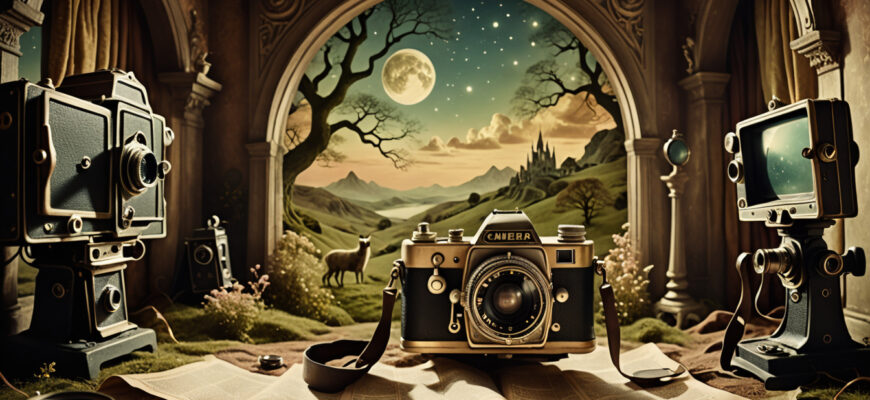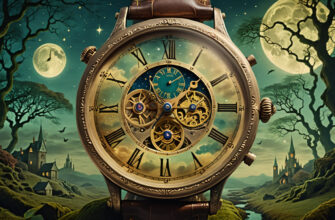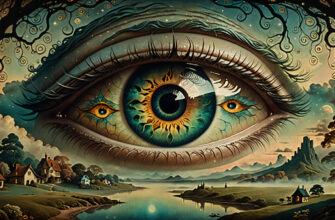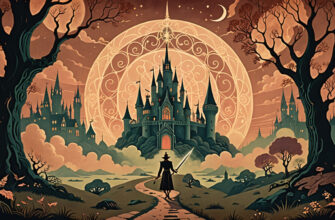Diving into dreams about cameras can reveal a whole world of meaning tied to how we see ourselves and the stories we carry. Why does the image of a camera turn up in dreams so often? It taps into something deeper than just snapping pictures—it’s about memory, truth, and how we frame our own experiences. When a camera appears in a dream, it often nudges us to pause and question: What parts of your story are you holding onto, treasuring, or maybe trying to change? Are you behind the scenes, in control of the lens, or are you the one being seen and perhaps feeling vulnerable? These questions spiral into reflections on honesty with ourselves, how we want to be witnessed, and how personal history shapes our present.
The emotional currents that run through these dreams are powerful. Joy, nostalgia, anxiety, or a raw vulnerability may swell up as you navigate who holds the camera and what’s being captured. It can feel like an invitation to look at layers of identity, memory, and the self with fresh eyes, sometimes revealing wounds or courage simmering beneath the surface. Framing this through a queer and feminist lens invites the recognition that cameras also carry histories of who is allowed to be seen and how narratives are captured or erased. Your dream can be poking at who controls your story and who gets to witness your truth. It’s less about the camera itself and more about the space it opens for agency, honesty, and healing in your personal journey.
- Exploring Dreams About Cameras: What Do They Reveal?
- The Camera as a Symbol in Dreams: Holding Truth and Memory
- How Dreams Reflect Emotional Textures and Accountability
- Unpacking Camera Dreams Through a Queer and Feminist Lens
- Interpreting Common Camera Dream Scenarios and Their Meanings
- Navigating the Journey Toward Authenticity, Healing, and Owning Your Narrative
Exploring Dreams About Cameras: What Do They Reveal?
What makes cameras dream magnets? On one level, they wrestle with memory—the urge to save moments, faces, feelings before they slip away. Cameras freeze time, allowing us to revisit the past, sometimes tenderly and sometimes with a sting. Dreaming you’re snapping photos might signal a need for reflection—to slow down enough to process something you’ve been carrying or hiding from. But it can also hint at a tension: are you seeking the full truth, or just the version you want to remember?
Then there’s perception. A dream featuring a camera can be a metaphor for how you’re choosing to see life or yourself. Is the lens clear or fogged? Focused sharply or out of reach? These details whisper about clarity and confusion, how you’re trying to make sense of the world or the stories you tell yourself. Your perspective shapes your reality, and the camera in dreams encourages a deep look at those inner lenses.
Emotionally, camera imagery invites us to lean into feelings of being watched—but not just by others. Sometimes it’s about witnessing yourself with kindness or confronting discomforts around exposure and vulnerability. Being behind the lens can offer control and power. Meanwhile, standing in front of it can stir up questions about fear, trust, or authenticity. What happens when the camera records and holds everything you reveal, no matter how raw or guarded?
Looking through a queer and feminist lens adds nuance to these pictures. Cameras carry a history of control over who’s visible and who’s erased, whose stories get told and which ones get hidden. Dreaming about cameras might tap into a personal reclaiming of that gaze—choosing who watches, what gets framed, and how your narrative unfolds outside the usual scripts. These dreams become a site of empowerment, a small act of resistance against invisibility or misrepresentation.
What’s your camera dream inviting you to ask yourself about your story?
- Who holds the camera, and who decides what’s seen?
- What are you choosing to show—and why?
- Are you ready to witness your story with honesty, even the parts that feel tough?
- How does your dream challenge you to step into clarity, healing, or authenticity?
The Camera as a Symbol in Dreams: Holding Truth and Memory
When holding a camera in a dream, it often signals a sense of command over your narrative. This act can feel like wielding power—choosing how, when, and what parts of life are made visible. It’s a moment of stepping into self-expression, a reminder that your story is yours to tell in your own way. For many, the camera becomes an emblem of control wrapped around vulnerability, where the tension between being seen and preserving boundaries lives.
Cameras play a dual role as tools for holding onto memories or confronting the past. Sometimes they serve as safekeepers of cherished moments, snapshots that comfort or affirm identity. Other times, the camera forces a reckoning—it pulls you up close to parts you might otherwise avoid, shining a light on old wounds or truths demanding attention. Dreaming of capturing images can be a delicate balance between honoring what was and deciding how it shapes your present path.
Imagine the camera’s eye as more than a lens—it’s a search for clarity and understanding. This metaphor underscores a thirst to see things as they really are beneath layers of fog or pretense. It’s the feeling that if only you could focus well enough, the blurry aspects of your life and self would snap sharply into view, revealing insight or new possibilities. The camera’s framing frames more than a photo—it’s framing your consciousness.
The difference between being ‘behind the lens’ or ‘in front of the lens’ matters a lot in these dreams. If you’re behind it, you’re the storyteller, curator of your image, commanding perspective with a relatable mix of power and responsibility. Being in front of the lens can stir anxiety or expose your vulnerabilities—it’s about how you show up for others and what you reveal. Both roles ask for a kind of trust: trust in yourself, in your audience, and sometimes in the process of witnessing.
The vulnerability felt from being watched unfolds another layer. Dreams that spotlight surveillance or recorded imagery can tap into anxieties around privacy, exposure, and control. Being watched may unearth questions about who holds authority over your story and what parts you keep hidden. These moments challenge you to explore boundaries around trust and the courage required to be authentically visible in any space—dream or waking life.
How Dreams Reflect Emotional Textures and Accountability
Cameras in dreams often stir up complex emotions tied to how visible and authentic you feel. There’s a raw edge to feeling exposed—whether it’s a fear of judgment or shame tucked deep into your chest. But these dreams also offer a chance to practice embracing self-expression, even when it feels uncomfortable or brave. After all, stepping into the light of your own story often calls for both discomfort and courage.
Accountability is another layer woven into the fabric of camera dreams. What we choose to reveal says as much about what we value as what we might prefer to keep private. Dreams can nudge us to ask hard questions: What narrative are you framing? What truth are you ready to hold? And who’s witnessing? Is it an internal audience, yourself, or others?
This can be tricky to unpack, but it carries a kind of spiritual weight. The camera’s presence often feels like a mirror held up to the soul—or a gentle, sometimes fearless call to alignment between appearance and essence. Which parts of your identity are you inviting into the light? Which are shadowed?
The questions to carry with you are simple but penetrating:
– Who is your audience?
– Who is the witness in this dream?
– And who truly holds the power of the camera?
Engaging with these can lead toward a clearer sense of ownership over your life’s story—and a step closer to embracing your full self without apology.
Unpacking Camera Dreams Through a Queer and Feminist Lens
Ever wonder why a camera shows up in your dreams and what it might be trying to say about visibility and power? These nocturnal images tap into feelings about who gets to be seen, who tells the story, and how identity shapes presence. At the heart of it, camera dreams often surface as a rebellion against erasure—particularly from queer and feminist perspectives where the spotlight has historically excluded or misrepresented marginalized voices.
Taking back control over visibility and the narrative in dreams becomes an act of reclaiming power. When the dreamer is behind the lens, it’s less about passive observation and more about actively choosing how to frame oneself and others. This reflects a deep desire to rewrite the story, to be the author of your own image instead of letting dominant culture define it. It’s the dream equivalent of saying, “This is how I want to be seen, and on my terms.”
The camera itself emerges as a witness to stories that society often sidelines. It holds the space for queered, marginalized, or forbidden experiences to be recorded and remembered. Think of the camera as a tool not just for capturing moments but for spotlighting those moments that deserve attention—stories that otherwise might be silenced or erased.
Dreams of cameras sometimes show up as symbolic resistance to invisibility. When the camera points toward you in a dream, it can be a declaration that your presence matters, even when real life tries to deny it. In this way, it becomes an assertion that your story will remain, that your identity refuses to be pushed into shadows.
But there’s a tender tension at play between gaze, consent, and storytelling in these dream spaces. Who controls the camera? Who gives permission to be seen? These questions echo waking life realities about how people are surveilled or objectified without consent. Nighttime symbolism offers a way to explore what it feels like to be both the subject and the storyteller—holding sovereignty over how and when self-expression happens.
Ultimately, dreams about cameras carve out a personal sanctuary where sovereignty over identity and visibility is explored and guarded. It’s a reminder that in dreamtime, you get to decide what is shown, how it’s framed, and when the story unfolds. These images are like snapshots of our ongoing quest to present ourselves authentically, deeply reflective of queer and feminist journeys toward empowerment and self-definition.
Interpreting Common Camera Dream Scenarios and Their Meanings
Imagine dreaming that you’re clicking photos. It’s more than just snapping pictures—it can signal seizing self-knowledge and the liberation that comes with it. Taking photos in dreams often suggests an urge to commit personal insight or experiences to memory, to preserve a truth that matters. Like an artist reframing what counts, you’re capturing parts of yourself you want to hold on to or explore later.
On the flip side, dreams where you’re the one being photographed bring vulnerability front and center. This may stir feelings about how you appear to others, the judgments you fear, or a deep questioning of whether you’re showing your “real” self. These moments in dreams expose the raw tension between public perception and private reality, asking you to face what it means to be witnessed.
When cameras show up broken, malfunctioning, or out of focus, think of it as a sign of barriers to clarity. Maybe there’s confusion blocking your ability to see yourself clearly, or emotional fog clouds how you process your identity. These frustrating moments suggest a need to repair or rewire how you relate to your own story and self-image.
Dreams where you watch yourself through a camera lens invite shifts in perspective. Seeing yourself from an outsider’s point of view might bring new awareness or highlight aspects of your identity you’ve overlooked. It’s a gentle nudge toward self-reflection, encouraging a more compassionate or honest gaze inward.
Being part of group photos or dream scenes in public spaces speaks to belonging and shared identity. These dreams reflect community narratives—the sense that your story doesn’t exist in isolation but interweaves with others’. They remind that collective visibility can boost individual confidence and that shared moments of witnessing can be healing.
Navigating the Journey Toward Authenticity, Healing, and Owning Your Narrative
Camera dreams act as a cosmic spotlight on your path toward authenticity. They point to moments when clarity about who you are—beyond external expectations—begins to emerge. In these dreams, you might catch glimpses of emotional terrain usually hidden or overlooked, offering honesty about fears, strengths, or unresolved wounds.
Dreams serve as a secret map revealing unseen emotional landscapes. They bring forward feelings about visibility—how comfortable you feel with showing your true self and the moments where vulnerability feels safer or riskier. This nocturnal insight becomes a gentle guide toward healing the deeper pain around invisibility or misrepresentation.
- Use what you notice in camera dreams as a compass: What parts of your story want to be told?
- Where do you need to set boundaries around your gaze and consent?
- What internal barriers need dismantling to allow your authentic self to be seen?
And just like the changing cosmic weather report influences inner and outer worlds, your dreams support the unfolding of your story in cycles. They remind you that healing and claiming your voice isn’t a straight line but part of a larger rhythm. With each lunar cycle, you’re getting closer to owning your narrative, shining in your full spectrum, and remembering—you were born for this.








